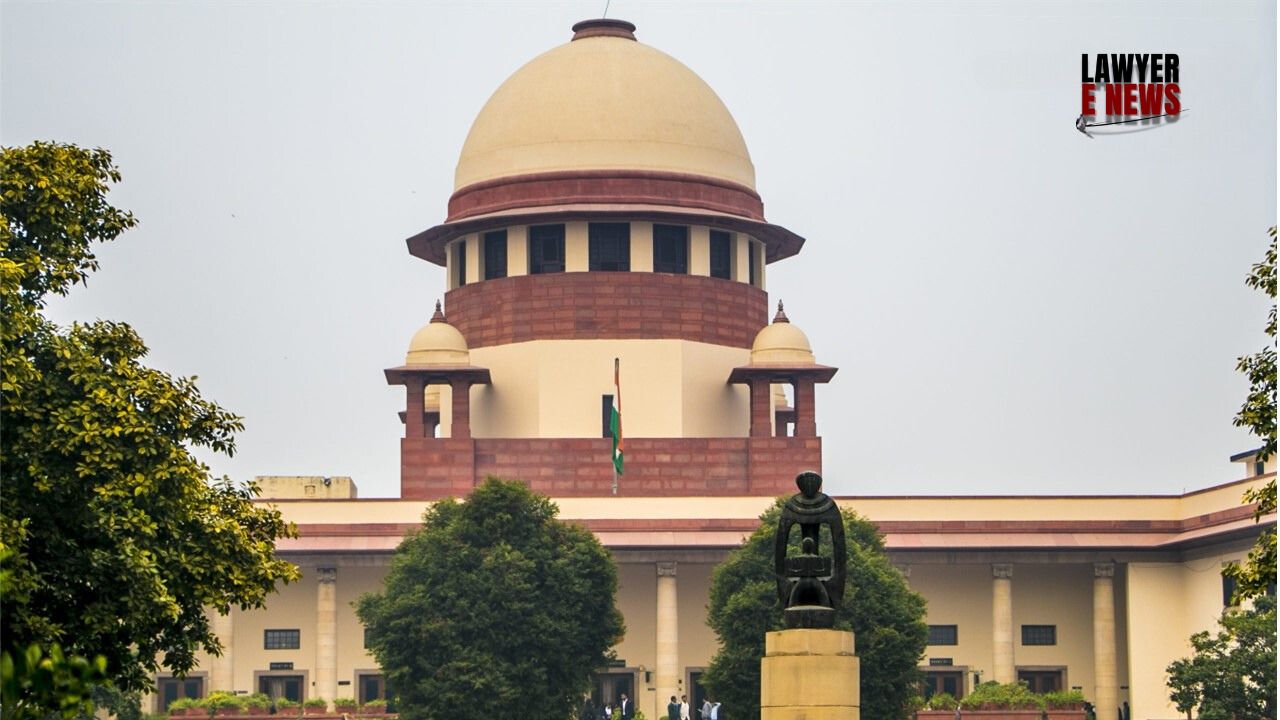-
by Admin
15 February 2026 5:35 AM



Supreme Court of India issued crucial directives for the efficient implementation of Section 479 of the Bharatiya Nagarik Suraksha Sanhita, 2023 (BNSS). The provision is aimed at reducing the burden on prisons by mandating the release of undertrial prisoners who have served a significant portion of their maximum potential sentence, subject to specified conditions.
The bench, comprising Justice Hrishikesh Roy and Justice S.V.N. Bhatti, expressed its commitment to ensuring the humane treatment of undertrial prisoners and directed all stakeholders to act with urgency to bring relief to eligible prisoners languishing in custody.
Section 479 of the BNSS provides that undertrial prisoners who have been detained for an extended period may be released. For first-time offenders, the release can be on a bond after they have served one-third of the maximum imprisonment term for the offense. For repeat offenders or those not falling under the first category, the threshold is raised to one-half of the maximum term. This benefit, however, excludes individuals charged with heinous offenses punishable by death or life imprisonment.
The provision also obligates Jail Superintendents to proactively inform courts once prisoners meet the eligibility criteria for release. Courts are empowered to order continued detention in certain cases, but they must provide written reasons for such decisions.
The Court noted that despite Section 479’s potential to alleviate prison overcrowding and safeguard individual liberty, its implementation has been uneven and fraught with delays. Justice Roy observed that “When such a beneficial provision is introduced by the legislature, all stakeholders must work diligently to ensure that justice is not withheld from those eligible for release under the law. Justice must extend to the last person behind bars.”
Reports submitted by Amicus Curiae Mr. Gaurav Agrawal and NALSA representative Ms. Rashmi Nandakumar highlighted significant gaps in compliance. While 27 States and Union Territories had filed responses detailing the steps taken, several major jurisdictions, including Uttar Pradesh, Bihar, Tripura, and Goa, failed to submit their reports. This non-compliance drew sharp criticism from the Court, which emphasized that lack of response from key regions undermined the very purpose of Section 479.
The Amicus’ report and discussions during the hearing revealed several challenges. These included incomplete identification of eligible prisoners, delays in forwarding cases to courts, and lack of coordination between jail authorities and legal services committees. The Court noted that even when cases were identified and referred, courts were slow to issue the necessary release orders.
Another critical issue was the lack of standardization in reporting formats. Variability in the information provided by States made it difficult to assess the status of cases comprehensively. The Court expressed particular concern over outdated jail records that failed to reflect amended charges, leaving some prisoners ineligible for release due to clerical oversights.
The bench also called attention to the plight of women prisoners, stating that jail authorities must pay special attention to their cases. Despite Section 479 being gender-neutral, the Court emphasized the need for proactive measures to address the specific challenges faced by women in custody.
Directions Issued by the Court
To address these gaps, the Supreme Court directed States and Union Territories to urgently comply with its earlier orders and submit comprehensive reports within two weeks. It outlined a standardized format for reporting, requiring detailed information about each eligible prisoner, including the status of their cases, steps taken for their release, and any reasons for delays.
The Court also stressed the importance of continuous monitoring. It directed Undertrial Review Committees (UTRCs) to work closely with jail authorities and legal services advocates to ensure that prisoners are identified promptly once they cross the eligibility threshold. The bench reiterated that stakeholders must avoid procedural delays, emphasizing that liberty is a constitutional right that cannot be compromised.
Justice Roy remarked that the justice delivery system must ensure that the benefits of Section 479 reach the intended beneficiaries without undue delays. He stated, “The identification of eligible prisoners must be accurate, and courts must expedite orders for their release. It is the responsibility of all stakeholders to ensure that these measures are implemented in letter and spirit.”
Acknowledging the legislative intent behind Section 479, the Court highlighted the need for coordinated efforts among legal services authorities, jail officials, and judiciary members. The Amicus noted that while some States, such as West Bengal and Uttar Pradesh, had made progress in aligning their systems with the provision, a national standard was essential for achieving uniformity and efficiency.
The matter has been listed for further hearing on December 10, 2024, by which time all defaulting States and Union Territories must submit their reports. The Court emphasized that non-compliance would not be tolerated and warned that laxity in implementing Section 479 would defeat its purpose of decongesting prisons and upholding the rights of undertrial prisoners.
This significant judicial intervention underscores the Supreme Court’s commitment to addressing systemic issues in India’s criminal justice system, ensuring that the promise of liberty is not eroded by procedural inefficiencies. Date of decision: 19/11/2024
